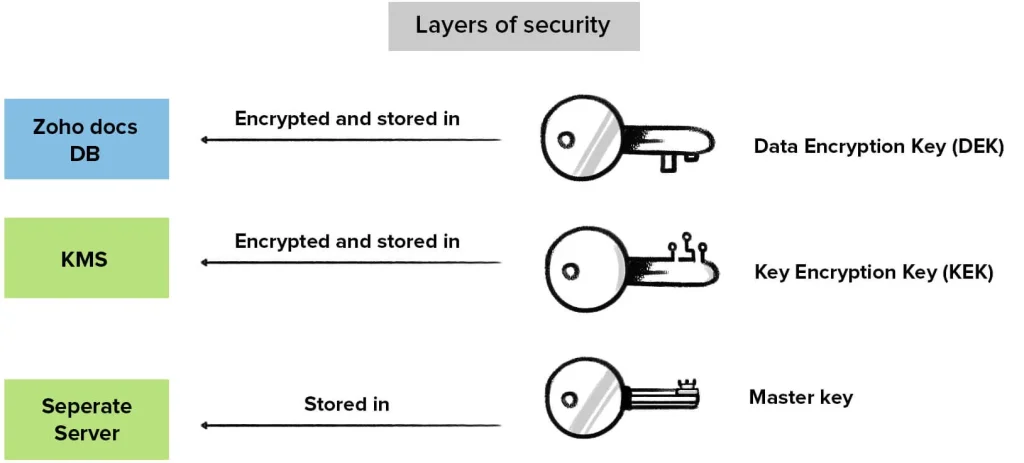Baidu Cloud Launches 2026 Quantum Encryption Suite

Introduction
Baidu Cloud has unveiled its 2026 Quantum Encryption Suite, marking a significant advancement in China’s cybersecurity and cloud computing landscape. The new suite is designed to provide robust protection for sensitive data, utilizing quantum-resistant algorithms and next-generation encryption techniques. As businesses increasingly rely on cloud platforms for operations, data storage, and AI applications, the importance of advanced security measures has never been greater. Baidu’s launch positions the company at the forefront of quantum encryption development in Asia and reflects China’s strategic focus on securing its digital infrastructure.
Quantum Encryption Overview
Quantum encryption relies on principles of quantum mechanics, such as superposition and entanglement, to enhance data security. Unlike classical encryption methods, which may become vulnerable to sophisticated computational attacks, quantum-resistant algorithms ensure that sensitive information remains secure even against the computational power of future quantum computers.
Baidu’s suite incorporates multiple layers of protection, including quantum key distribution (QKD), post-quantum cryptography (PQC), and hybrid encryption protocols. These technologies allow for secure communication between cloud servers, client devices, and AI systems, reducing the risk of data breaches and unauthorized access.
Technological Advancements
The 2026 Quantum Encryption Suite features several technological innovations:
- Quantum Key Distribution: Uses quantum states of photons to generate encryption keys that cannot be intercepted without detection.
- Post-Quantum Cryptography: Algorithms designed to withstand attacks from quantum computers, ensuring long-term data security.
- Hybrid Encryption: Combines classical and quantum methods to balance performance with security for enterprise applications.
Baidu Cloud claims that the suite can secure sensitive AI datasets, financial records, healthcare information, and industrial data with minimal latency. The platform is compatible with existing cloud infrastructure, allowing seamless integration for corporate clients without major system overhauls.
Strategic Significance
China has prioritized quantum technology as part of its national innovation strategy, with goals to achieve breakthroughs in secure communications, computing, and cryptography. Baidu’s launch supports these objectives by providing domestic companies with homegrown quantum security solutions. The initiative reduces reliance on foreign technologies and strengthens China’s digital sovereignty.
Industry analysts note that secure cloud infrastructure is critical for AI research and development. As AI models grow more complex and data-intensive, the need to protect intellectual property, training datasets, and proprietary algorithms becomes paramount. Baidu’s suite enables companies to store and process sensitive AI datasets in a secure environment, mitigating risks of cyber theft and industrial espionage.
Market Implications
The introduction of quantum encryption in cloud services has significant implications for both domestic and international markets. In China, banks, healthcare providers, and technology firms are likely to adopt Baidu’s suite to meet regulatory requirements and strengthen cybersecurity defenses. Regulatory agencies have increasingly mandated data protection measures, particularly for AI-driven applications involving personal or financial information.
Globally, Baidu’s suite could influence competition in the cloud services market. Companies in Europe and Asia may seek to implement similar quantum encryption solutions to meet international cybersecurity standards. By launching the suite ahead of competitors, Baidu gains a first-mover advantage and sets a benchmark for secure cloud services in the quantum era.
Economic and Industry Impact
Baidu’s investment in quantum encryption reflects broader trends in China’s technology sector. Government reports indicate that cybersecurity spending is projected to reach over 300 billion yuan by 2026, driven by growing demand for secure cloud computing and AI services. The company’s suite not only meets these security needs but also creates opportunities for partnerships with hardware manufacturers, AI developers, and enterprise clients seeking advanced protection.
Quantum encryption adoption may also influence international trade in technology. Companies exporting AI solutions or sensitive industrial data may prefer secure domestic platforms to comply with national and international regulations. Baidu’s suite offers a domestic alternative that aligns with China’s cybersecurity and data protection policies.

Challenges and Considerations
While quantum encryption offers high security, challenges exist in deployment. Integration with legacy systems may require additional investment in infrastructure, employee training, and process optimization. Performance considerations are also critical, as encryption processes can impact data processing speed if not optimized.
Moreover, international standards for quantum encryption are still evolving. Companies adopting Baidu’s suite must ensure compliance with both domestic and foreign regulations, particularly if handling cross-border data transfers. Analysts recommend establishing clear protocols for system updates, audits, and contingency measures to ensure robust, long-term security.
Future Outlook
Baidu plans to expand the Quantum Encryption Suite with AI-driven monitoring and automated threat detection. This approach will allow enterprises to proactively identify and mitigate risks, enhancing overall cybersecurity resilience. Future updates are expected to integrate with other Baidu Cloud AI services, enabling secure deployment of advanced AI models for industrial, healthcare, and financial applications.
China’s emphasis on quantum technology and cybersecurity will likely continue to drive innovation. Companies like Baidu, Alibaba, and Huawei are expected to compete in developing secure, scalable cloud platforms with integrated quantum encryption capabilities. As adoption grows, these solutions could become standard in global technology ecosystems, reinforcing China’s leadership in next-generation cybersecurity.
Conclusion
The launch of Baidu Cloud’s 2026 Quantum Encryption Suite represents a significant advancement in securing China’s digital infrastructure. By combining quantum key distribution, post-quantum cryptography, and hybrid encryption, Baidu provides enterprise clients with a robust solution to protect sensitive AI and industrial data. The initiative strengthens China’s technological sovereignty, enhances cybersecurity standards, and positions Baidu as a leading provider of secure cloud services. As quantum technology adoption accelerates, the suite is likely to set benchmarks for secure cloud computing, both domestically and internationally.






